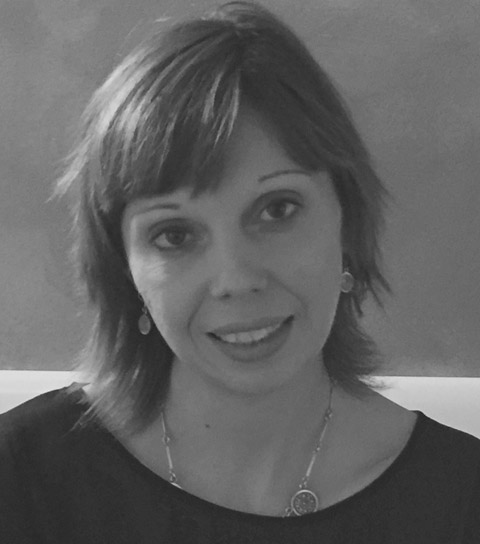


Orcid: orcid.org/0000-0003-2153-0169
ResearcherID: M-3163-2013
Scopus Author ID: 36718039400
My name is Silvia Riva and I am a researcher in Cognitive Psychology. I study the cognitive mechanisms underlying judgments and decisions and how they are influenced by the characteristics of the environment and the skills of the decision maker. A great part of my research focuses on the use of mental strategies (heuristics) that can impact of individual's choice, positively or negatively. Thematically, I am involved in research related with information search, risk perception, trust relationships, the role of emotions and decision making in different context (e.g. health, organisations). Additionally, my research focuses on nudging to improve people's health and safety.
In simple words, I try to understand "How people with limited time and cognition make good decisions for their own health and well-being?" Operatively, I use an eclectic mix of methods in my research, including quantitative and qualitative methods but also meta-analyses, behavioural experiments and, more recently, web technology based methods.
Different tools are therefore required. My approach includes both the development of theories and models and their testing by experiment and empirical observation.
Being an Academic, my position includes teaching and research. About teaching I mostly teach Cognitive Psychology, General Psychology, Applied Psychology and Research Methods. Together with my activity as a researcher and as a clinician, I have a great passion: classical music and I am a member and great follower of the Ars Cantus symphonic orchestra!.

After a solid postgraduate traineeship in Australia (Coasit/Melbourne University) and a position as a Marie Curie fellow in Germany (Universitätsklinikum Hamburg-Eppendorf) taking part in the Murinet project, I have obtained my doctorate (Doctor Europaeus) in Psychology at the Catholic University of Milan. I did my doctorate in collaboration with a researcher of the Max Planck Institute for Human Development, Adaptive Behavior and Cognition unit in Berlin (Germany) that is a specialized centre for decision making research. My dissertation has been aimed at applying the concept of bounded rationality in medical choices in order to analyse the process by which laypersons make decisions in the field of non-prescription drugs therapy. I have studied which heuristics (especially fast and frugal) people use, which learning styles they adopt, and the impact of socio-demographics variables (such as age, gender, education) on medical decisions. In 2017, I was awarded the prestigious Marie Curie Individual Fellowship and I move to UK (University of Wolverhampton) where, as a training activity within this project, I obtained the Post Graduate Certificate in Higher Education (PGCHE) and I became fellow of the Higher Education Academy (HEA), the most recognised teaching qualification at academic level in UK. At clinical level, I am also a Cognitive-Behavioural Psychotherapist. My training is inspired by Cognitive Behavioral Therapy (CBT) approach (Humanitas Psychotherapy School of Milan) - focusing on Mindfulness, Acceptance, and Compassion Therapy (ACT), Commitment Therapy and Rational Emotive Behavior Therapy (REBT).
Acceptance and Commitment Therapy (ACT)
Acceptance and Commitment Therapy (ACT) has established as a behavioural therapy to support people learn methods and actions to live life more in the present, more dedicated on important values and goals, and less focused on painful emotions, and bad events. ACT helps people how to cope with and overcome painful experiences and feelings through acceptance and mindfulness techniques, to improve self-compassion and flexibility, and to build life-enhancing strategies. ACT is not about refusing painful situations or fighting bad emotions; it's about accepting life circumstances and focusing on own values. "It offers a way out of suffering by choosing to live a life based on what matters most" (ACBS). ACT has developed within a scientific framework, and it continues to give empirical evidences of its success with numerous research studies and important publications. ACT techniques can be applied to different life difficulties such as anxiety, depression, PTSD, substance abuse, chronic pain, psychosis, eating problems, and weight management, just to mention a few.
The evidence of ACT is not only related to the clinical field but it has a great potential in research for the promotion of health interventions, particularly for supporting people making good decisions for their health and wellbeing in different sectors (e.g. health, organisations, social life).
My most important academic tools are Pubmed, Scopus and Google, which help in keeping me informed about all the new interesting research articles in the web. Next to literature searching, I like analyzing data. Therefore, SPSS and SAS are two important instruments for me. I also use specific softwares for certain task, such as G*Power (to calculate sample size), Google calendar to organize all my activities and Dropbox, which help me to unify my different documents in an unique virtual space. Outside my "research tools", my most important support is represented by my family that gives me energy, enthusiasm and the capability for staying strong and not giving up.

http://eadm.eu/
http://www.sjdm.org/
http://smdm.org/